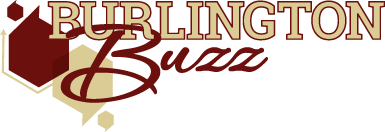Burlington Town Government: A Changing Mosaic of State & Local Laws
Committee discusses consolidating current practice into a charter, clarifying structure and increasing transparency

At their recent meeting, the Burlington Government Review Committee took a birds-eye view of the current set of guidelines that lay out the town's municipal structure – and it's a lot.
Currently, the town of Burlington is governed by a series of special acts and bylaws. A special acts is approved by the state legislature and is like a state law that only applies to the community that generated it. A bylaw is a local law, which can be changed by Town Meeting with Attorney General approval. Special acts are durable – they're really hard to modify, because a change would involve going back to the legislature. Bylaws still must go through Town Meeting but are by definition more fluid.
Consultants from the Collins Center, Pat Lloyd and Anthony Wilson, assembled all the different legal documents that govern the town, summarizing them in a presentation so committee members could have a general understanding of the way things work now before digging in more deeply to explore individual components.
Over the next year or so, they'll work to create a clear, easily-digestible charter – which is analogous to a constitution at the state or national level – as well as bylaws that complement the charter and spell out the town's governance in more detail.
Burlington's Current Government Structure
Municipalities in Massachusetts have two basic forms of government – city or town – determined by the structure of the legislature. Under each, there are a couple of sub-forms. Cities can have a council and a mayor, for example, or a council and a city manager. Towns can have Representative Town Meeting (only 32 total of the 351 municipalities) or Open Town Meeting. The executive branch for a town is a Select Board. There is no judicial branch; those matters are handled at the county or state level.
Legislative Branch
Burlington uses a Representative Town Meeting government form, adopted in 1971 via special act and amended a number of times over the years. The town has 126 town meeting members from seven precincts who serve three-year terms. Unlike most towns, which hold one or two meetings annually, Burlington conducts three (January, May, and September). Special meetings can be called through a petition of 200 voters, by the Select Board, town moderator, or ten town meeting members.
Town Meeting passes the town budget, authorizes debt, approves bylaws, and approves spending. The Town Moderator, elected yearly, runs town meetings and appoints several committees including Ways and Means, Capital Budget Committee, and others.
Executive Branch
The executive branch is headed by the five-member Select Board, which acts as the chief executive body. Members serve three-year terms and meet about twice monthly. They prepare the town meeting warrant, call elections, appoint certain boards and committees, set policy, and provide strategic planning. The Select Board appoints some roles, including the town administrator, town counsel, and town accountant.
The town administrator position, established in 1978 via another special act, handles daily administration, supervises officers under the Select Board, manages human resources, prepares budgets, attends meetings, negotiates contracts, and appoints certain officers and employees with Select Board confirmation.
Stitching Together the Patchwork
The committee is studying similar-sized towns (22,000-30,000 residents) with representative town meeting structures, including Dedham, Milford, Milton, Reading, Walpole, and Winchester.
Over the next 12-18 months, the committee's work will include:
- Organizing existing special acts and bylaws into a coherent charter
- Identifying inconsistencies between special acts and bylaws
- Deciding what should be in the charter versus bylaws
- Considering potential improvements
- Gathering input from stakeholders and the public
The committee plans to work through different charter sections, starting with the legislative branch, and will be using public input to inform their work as they go. Chair Betsey Hughes plans to provide an update at the September Town Meeting.
The group's work will culminate in a proposed unified charter document that is clear and captures the essence of the town's municipal structure as well as recommendations for bylaws to support the town's governance.
Much of this work, say Lloyd and Wilson, will be to codify existing practices so they're all in one place, but the committee will also interrogate the reasons for those practices and make recommendations when appropriate. Throughout the process, Lloyd and Wilson will make recommendations and share best practices from around the state.
The next meeting of the Government Review Committee will be August 12.
Editor's note: Writer and Burlington Buzz Editor-in-Chief, Nicci Kadilak, is a member of the Government Review Committee.





